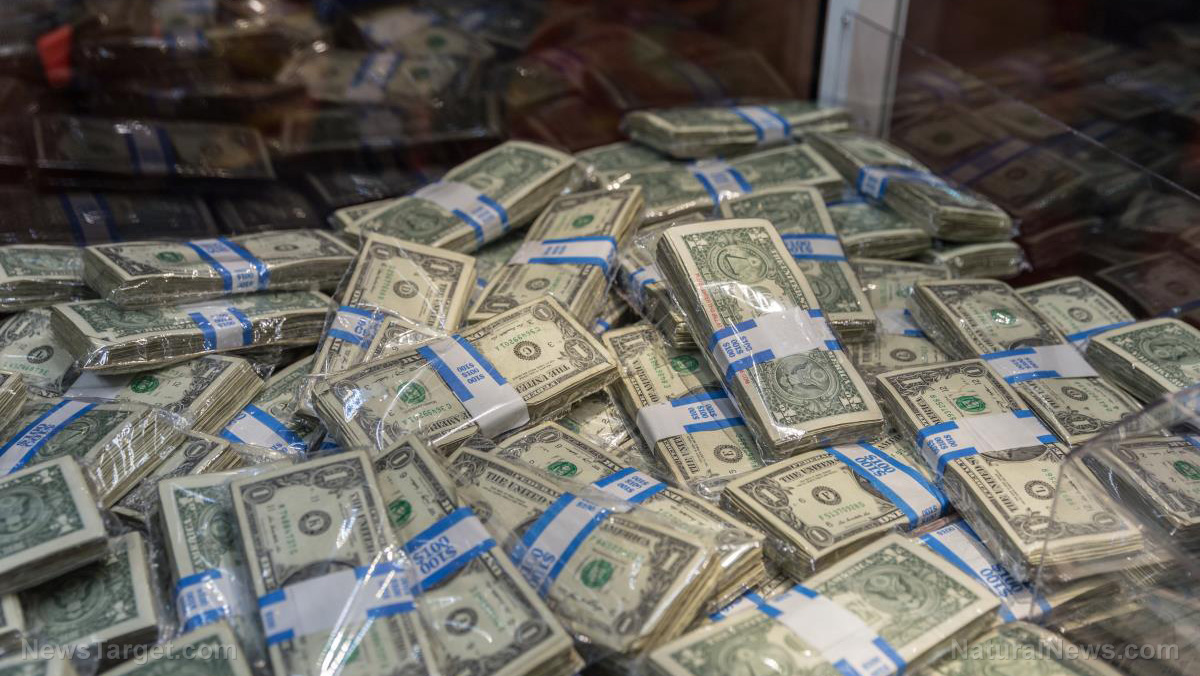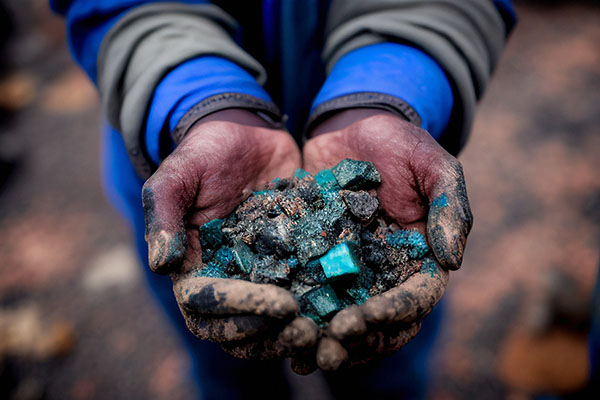Germany’s gold dilemma: Urgent calls to audit U.S.-held reserves amid political tensions
04/16/2025 / By Willow Tohi

- Germany demands transparency and repatriation of $115B in gold stored at the NY Federal Reserve amid growing geopolitical tensions. Distrust worsened after delayed repatriation requests in 2013 led to receiving improperly formatted gold bars.
- Post-WWII, Germany stored gold abroad (New York, London, Paris) for security, relying on Cold War alliances. Recent delays and inconsistencies in reclaiming gold have fueled doubts about its authenticity and availability.
- German lawmakers (notably in the CDU) push for audits, fearing U.S. policy instability, inflationary risks, or asset freezes. Similar scrutiny arises in Italy and Switzerland, indicating broader European skepticism of U.S. custodianship.
- Upcoming Basel III regulations (July 2025) may pressure the Fed to secure gold as compliant collateral. Speculation exists that gold could underpin digital currencies, but German officials demand concrete answers.
- The NY Fed claims gold reserves are secure but avoids formal audits — only allowing limited inspections. Critics argue trust alone is insufficient, pointing to Norway’s 2003 decision to divest gold amid uncertainty.
Germany is once again challenging the security of its vast gold reserves stored in the United States, demanding transparency and repatriation amid escalating geopolitical friction. With over $115 billion worth of gold held at the New York Federal Reserve — and concerns over U.S. trustworthiness mounting after years of policy uncertainty — the debate over who owns the gold and who controls it has reignited. German lawmakers, economists and central bank officials are clashing over whether the Federal Reserve’s storerooms hold what is owed to Berlin, as historical tensions collide with modern monetary risks. The stakes now extend beyond Germany: the outcome could reshape global financial trust in the post-WWII order.
Historical context: From post-war stash to modern anxiety
Germany’s gold reserves — now the world’s second-largest — are deeply tied to its turbulent past. After World War II, Allied forces seized nearly all of its gold, leaving the country’s bullion coffers nearly empty. By the 1960s, a post-war economic miracle enabled Germany to rebuild its reserves, often storing bullion abroad, such as in New York, London and Paris, to safeguard against potential conflict. The Cold War logic of “diversifying security” via alliances with Western allies underpinned this strategy.
However, distrust began to simmer in 2013 when Germany discovered its repatriation demands faced steep delays. After requesting half its gold back by 2020, Berlin waited years — only to receive bars that had to be remelted due to improper formatting. This drawn-out process, detailed in internal Bundesbank records, fueled suspicion that the U.S. struggled to locate or verify the gold.
Current demands: Political tensions fuel German scrutiny
Fast-forward to 2025, and Germany’s unease has reached a boiling point. Senior figures in Chancellor-elect Armin Laschet’s Christian Democratic Union (CDU) party are pushing for audits of the 1,236 metric tons of German gold still in U.S. custody, now valued at $115 billion. Outgoing parliamentarian Marco Wanderwitz, a leading voice on the issue since 2012, argues German officials “must reclaim agency over their assets in an era of unpredictable tariff wars and de facto monetary autocracy.”
The urgency stems from shifting geopolitics. Recent U.S. troop reductions in Europe and President Donald Trump’s erratic fiscal policies have deepened fears that Germany’s wealth could face nationalization or inflationary risks. As Markus Ferber, a CDU European lawmaker, stated unequivocally, “Officials must personally countstored gold bars. Trust must be verified, not assumed.”
This push aligns with broader European skepticism. Italy and Switzerland also store gold in New York, raising questions about whether nations are increasingly wary of relying on U.S. custodianship.
The Basel III link and global monetary uncertainty
While German demands are central, analysts suggest broader forces are at play. The most pressing deadline comes in July 2025, when updated Basel III banking regulations take effect, requiring stricter collateral rules for central banks. The Federal Reserve’s scramble to repatriate gold from overseas — from South Africa to the Netherlands — may reflect efforts to ensure compliance.
Some experts, like Björn Brey of the Norwegian School of Economics, argue the gold’s true purpose is monetary innovation. “Gold could anchor a digital dollar or repurpose debt,” he said, noting Treasury Secretary Scott Bessent’s recent remarks about monetizing assets. However, German politicians dismiss such theorizing, preferring concrete answers over speculative plans.
Federal Reserve’s response: Reaffirming trust but taking precautions
The New York Fed has consistently defended its record. Bundesbank President Joachim Nagel stated, “The New York Fed is a trusted partner; the gold’s safety is undeniable.” Yet critics counter that trust alone cannot resolve access concerns. Norway’s 2003 decision to divest all its gold reserves — young economist Michael Jäger of the Taxpayers Association cited this — highlights alternative strategies amid uncertainty.
The U.S. response suggests prudence over defiance. While no formal audits have been conducted since 1953, the Fed has begun allowing limited inspections. However, Germany’s Bundestag remains unsatisfied, with some members echoing Wanderwitz’s warning: “If trust requires proof, then reasons have been given.”
A multinational crossroads in monetary faith
Germany’s gold dispute is no longer a bilateral issue. From Berlin’s repatriation predecessors in 2013 to Italy’s silent scrutiny today, the debate underscores a global distrust of Cold War-era financial structures. As historians and economists weigh the odds of a Fort Knox audit, nations face a stark choice: cling to antiquated alliances or reclaim fiscal sovereignty.
With Basel III looming, geopolitical fractures widening and German gold remaining unverified, the world watches to see whether gold — a relic of past empires — will define the currency systems of tomorrow, or become collateral in an intercontinental game of thrones.
Sources include:
Submit a correction >>
Tagged Under:
audit, big government, chaos, Cold War, conspiracy, deception, distrust, geopolitical tension, Germany, globalism, gold report, Gold Reserves, insanity, money supply, panic, supply chain, traitors, United States
This article may contain statements that reflect the opinion of the author
RECENT NEWS & ARTICLES
COPYRIGHT © 2017 METALS NEWS


















